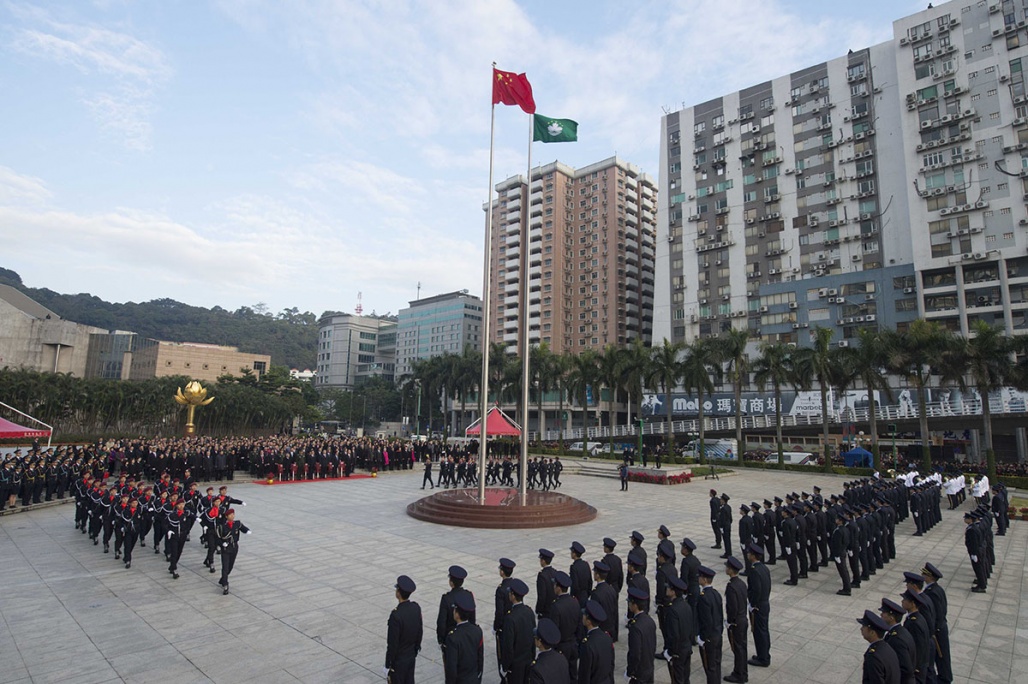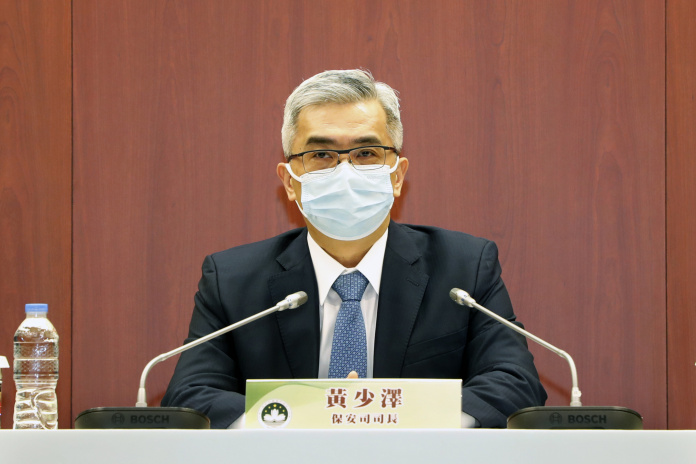The Executive Council has announced on Friday the conclusion of the discussion on the new national security bill, which will now be tabled to the Legislative Assembly with the aim of coming into effect “as soon as possible”
“In order to fill the gaps in the legal system, to obtain protection against security risks and to improve the level of law enforcement, the proposed law revision should be implemented as soon as possible”, can be read in the document. distributed at a press conference.
In the same note it is suggested “to add the provisions relating to the attribution of an urgent nature to the procedures for the execution of the Law on the defence of State security [the official name of the the city’s national security law first adopted in 2000] and its confidential treatment of processes, which, together with the provisions of criminal procedure and the measures aforementioned preventive measures, are also applicable to crimes against security”.
In August, the Macau Government proceeded with the public consultation on the legislative revision of the national security law, which lasted until October 5, having received almost six thousand opinions. The overwhelming majority – some 93 per cent of all options collected – were in favour of the law amendment, according to the government’s summary report.

During the press conference of the Executive Council, Secretary for Security Wong Sio Chak indicated that the law is in line with the international pacts applied in Macau and that it seeks to protect the fundamental rights of the population, but that this does not mean that people can attack the security of the State.
The national security amendment bill law provides, among many other provisions, to punish anyone abroad those commit crimes against China’s national security.
Authorities announced that they want to “introduce adaptations to legally sanction any individual, organisation or association that practises acts harmful to the security of the State through the various forms of connection”.
The crime of state secession now encompasses the use of non-violent illicit means. The crime of “subversion against the Central People’s Government” now has a wider scope and is defined as “subversion against the political power of the State”.
To the crime of sedition it is added that “it is criminally punishable who, publicly and directly, incites the practise of the crime of rebellion that harms the stability of the State”.
The crime of “subtraction of a State secret” is now called “violation of a State secret”, with a greater scope and aggravation of the penalty.
With the new legislation, it is proposed to create the crime of “instigating or supporting sedition”, in order to “enhance the penal policy in defence of national security and independently criminalise instigation or related assistance”.
Another proposal is to create “the preventive measure of ‘interception of communication of information’”, which, in practise, means the possibility of accessing the record of communications from the last six months directly from telecommunications operators and providers of network communications services .
The new legislation also provides for the introduction of a measure of “temporary restriction on leaving borders”, which in practise makes it possible for someone to be detained without having yet been formally constituted as suspect, “in order to guarantee that the suspects can cooperate with the authorities police officers in the investigation and collection of evidence in a relatively short period of time”.




















